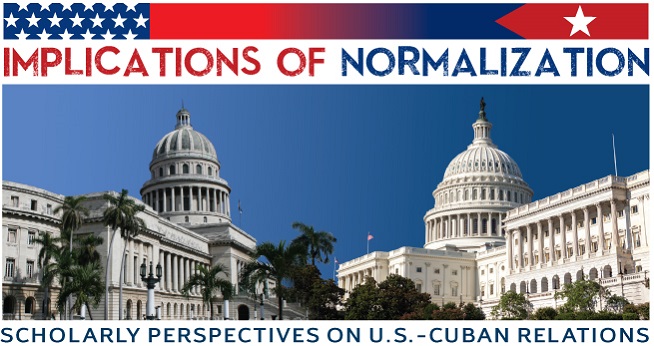Implications of Normalization: Scholarly Perspectives on U.S.-Cuban Relations, a digital essay collection from the Cuba Program in collaboration with American University’s Center for Latin American and Latino Studies, considers D-17—shorthand for December 17, 2014, the day when Barack Obama and Raúl Castro appeared on television simultaneously to announce their intention to restore diplomatic ties between Cuba and the United States—and its ramifications. Though a formal end to the US embargo requires legislation in Congress, the two presidents outlined a series of measures within their executive reach to begin the process of normalization, including an exchange of prisoners, expanded trade and travel, and a plan to reopen embassies in Havana and Washington. After more than a half century of estrangement and hostility, the surprise announcement, which came at the end of eighteen months of secret negotiations, was cause for both celebration and consternation. What does it mean to contemplate normalization between two countries with such a fraught history of interaction? How might experiences of normalization between the United States and other countries with which it has sought to reduce longstanding hostilities provide lessons for those who seek to understand the likely course of events with Cuba?
Edited by former SSRC program director Eric Hershberg with William M. LeoGrande, his colleague in the American University Department of Government, Implications of Normalization offers insights into these and other questions from leading experts in Canada, Europe, and Latin America, as well as Cuba and the United States. Drawing on the scholarship of the contributors and on a substantial body of academic research, the essays collected encompass a range of themes, from US-Cuba relations to hemispheric dynamics to the consequences for ongoing economic, political, and societal change in Cuba. Included is a piece by former SSRC Working Group on Cuba member Louis A. Pérez Jr., who reflects on the US tradition of paternalism and entitlement with regard to Cuba and questions how different the new policy actually is. Intended to inform the work of researchers, students, and practitioners, as well as the general public, the essays can be distributed freely [PDF download available].
Image credit: Luciano Melo/CLALS.




